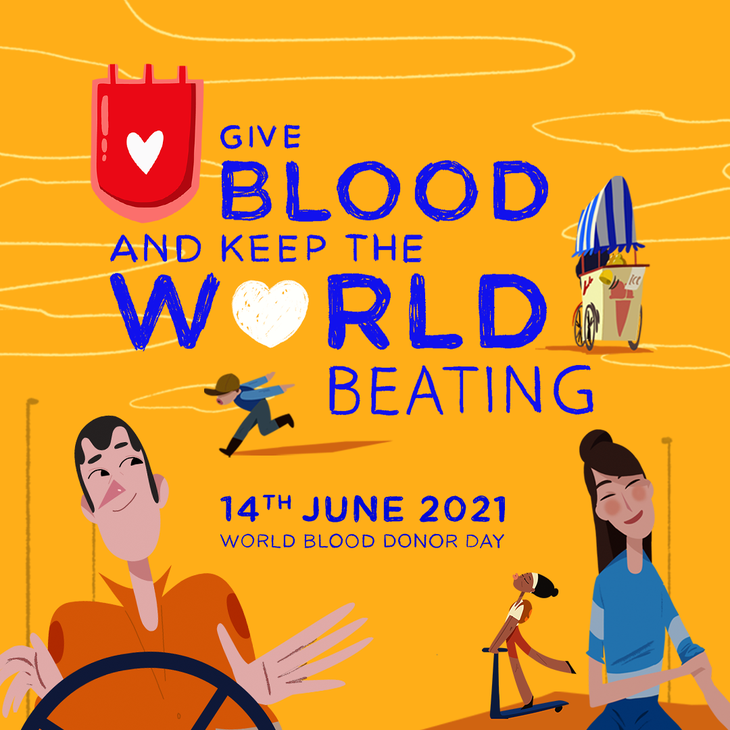(VOVWORLD) - Since 2004, the World Health Organization (WHO) and the World Blood Donor Associations have officially chosen June 14 every year as World Blood Donor Day. The purpose of this day is to call on countries and communities to recognize and honor the noble deeds of voluntary blood donors.
 (Photo: World Health Organization) (Photo: World Health Organization) |
Blood is a special medicine that currently has no substitute. Every year, the world needs about 130 million blood units for treatment, emergency, and disaster prevention.
However, the WHO says that the world has collected only 81 million units of blood each year, according to reports from 178 countries. Based on the Human Development Index (HDI), 54 countries with high HDI index (accounting for 16% of the total world population) collect 61% of the world's blood, while in 124 countries with moderate and low HDI (accounting for 82% of the world's population), the amount of blood collected only accounts for 39% of the world's blood volume. This is a serious imbalance in ensuring blood supply to patients across countries and regions. In developed and high HDI countries, 94% of the blood collected is from voluntary blood donors. Only 34 countries have the percentage of voluntary blood donors reaching 100%.
To create a safe blood supply on a global scale, the WHO and the International Federation of Red Cross and Red Crescent Societies have collaborated for many years for the blood safety and blood donor program.
In 2004, June 14 was designated as World Blood Donor Day. June 14 is the birthday of Austrian Professor Karl Lendsteiner, who invented the ABO blood type in 1900, winning the Nobel Prize in medicine and making an important step forward in the history of blood transfusion.